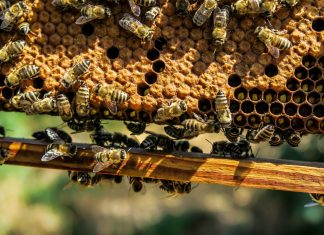Estimated reading time: 3 minutes
Commercial agriculture, while essential for ensuring food security for a burgeoning population, poses certain challenges. One of these is an increased risk of disease outbreaks due to intensive livestock farming, where animals live in proximity. However, few countries have had to manage disease outbreaks to the extent that South Africa has had to in recent years.
The consensus among various experts is that the almost-simultaneous disease outbreaks are driven by various factors. These factors include the following:
- Irresponsible or illegal movement of animals.
- A lack of state oversight, vaccinations and proper awareness.
- A lack of capacity to reinforce control measures.
- Little to no government funding.
What are the biosecurity challenges?
The protocol for controlled diseases such as foot and mouth disease and avian influenza is to place all affected farms under strict quarantine, euthanise surviving animals, and dispose of the carcasses to restrict the disease from spreading.
Unfortunately, this system has major weaknesses. State veterinary services don’t have sufficient resources to manage the outbreaks effectively, and because the state doesn’t compensate producers for their losses, they are reluctant to comply with orders to cull, resulting in the spreading of disease.
Vaccines pose a challenge, as a breakdown in the state-run Onderstepoort Biological Products caused a serious lack of foot and mouth disease vaccines this year. Moreover, South Africa still does not have avian influenza vaccines. The government is reportedly close to securing access and fast-tracking the registration of these medicines.
The impact is severe
Unfortunately, this situation threatens the livelihoods of producers, as well as the 500 000 people employed in the livestock industry, while the disruption of national and international markets is another major consideration. Beef exports accounted for approximately 1% of agricultural exports in 2022. However, these exports were down 12% year-on-year according to data from Trade Map, primarily due to closures of various export markets following the foot and mouth disease outbreak.
The wool and pork industries were also affected by the disease. Trade Map data showed that China, a significant market for South African wool, suspended imports in 2022, resulting in a 21% year-on-year decline in the export value of wool that year. Until now, foot and mouth disease has not occurred in any pigs, but fears that the disease could transmit to pigs prompted Namibia, which was South Africa’s largest pork export market prior to August 2022, to impose its current ban on South African pork.
On top of the foot and mouth disease woes, the pig industry was put under more pressure late last year when outbreaks of African swine fever were reported. More recently, poultry livestock producers have had to deal with avian influenza. Approximately a quarter of South Africa’s chickens have been affected, and breeders have suffered losses of around $25 million, or R460 million, so far.
What needs to change?
Experts concur that biosecurity requires both government and industry actors to take responsibility and work together to fix the situation. However, the private sector and state agencies distrust each other. The situation requires fresh and creative ideas and mutual understanding to cope with the actual challenges.
The lack of a reliable national disease control system leaves assurance of food safety, agricultural financing and trust between consumers and producers hanging in the balance, with producers enduring the most of the resulting financial strain.
The South African agricultural sector faces many urgent challenges. Yet, biosecurity must be recognised as one of the most pressing – the country’s food security and export potential depends on it. – John Hudson, head of agriculture at Nedbank Commercial Banking
Think bigger. Think Nedbank Commercial Banking.
For more information, email us at agriculture@nedbank.co.za.






